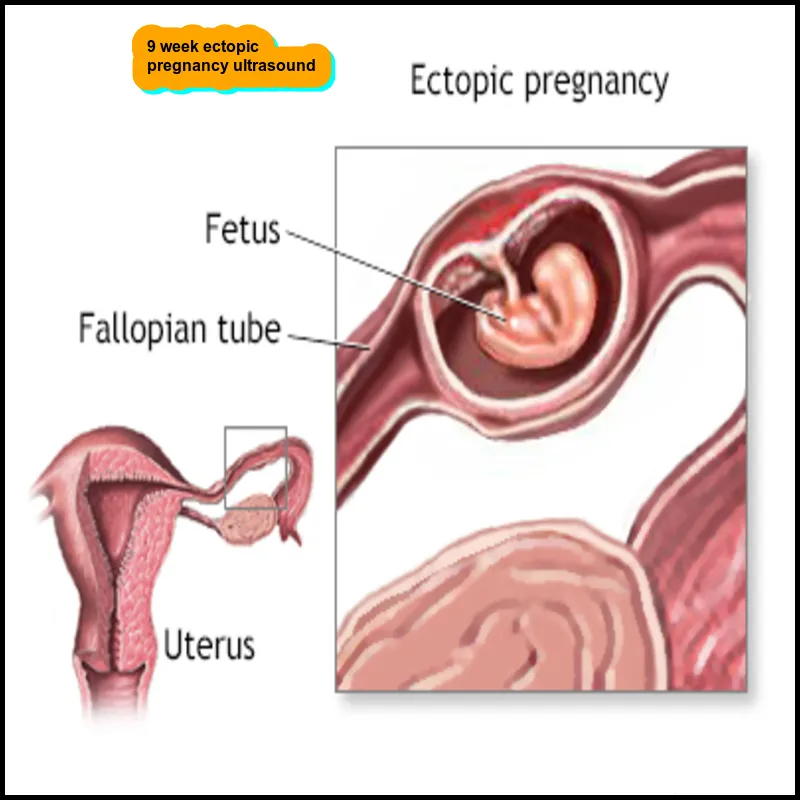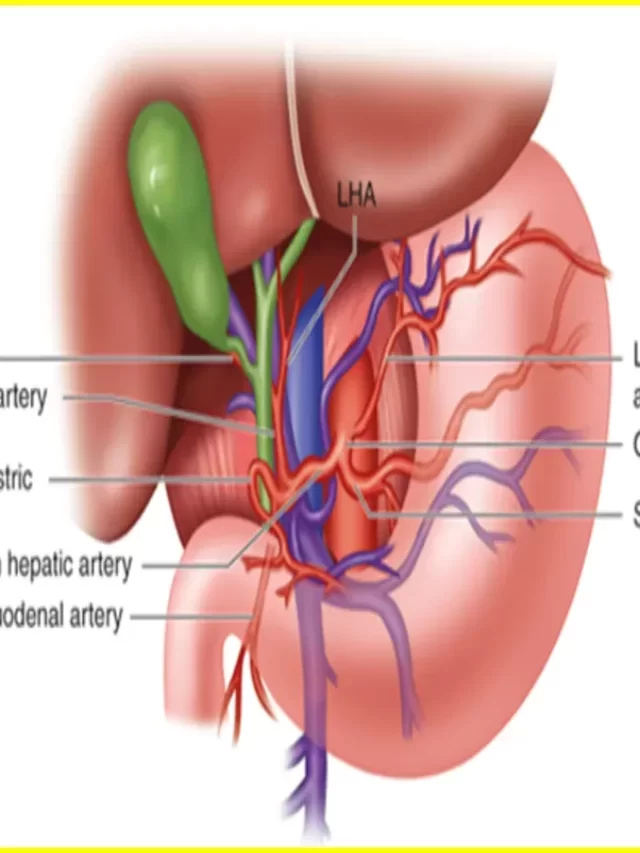9 Week Ectopic Pregnancy Ultrasound
Given that ectopic pregnancies can be fatal, it is imperative that you seek emergency medical assistance if you suspect or have been diagnosed with one. Ectopic pregnancies can be identified and confirmed by ultrasound, a frequent diagnostic technique. However, a number of variables, including as the pregnancy’s gestational age and particular circumstances, might affect how accurate the ultrasound results are.
Compared to an intrauterine pregnancy, an ectopic pregnancy at 9 weeks of gestation may be more difficult to see on ultrasound. At nine weeks into a typical intrauterine pregnancy, an embryo is growing inside the uterus and a fetal heartbeat is usually apparent on the ultrasound.
For an ectopic pregnancy, the ultrasound may reveal the absence of an embryo within the uterus. Instead, the medical professional might observe other signs that could suggest an ectopic pregnancy, such as:
- Empty Uterus: The uterus may appear empty or smaller than expected for the gestational age.
- Adnexal Mass: An ectopic pregnancy might be visible as a mass or abnormal structure outside the uterus, often in one of the fallopian tubes or other pelvic structures.
- Fluid in Pelvis: Presence of free fluid in the pelvic area, known as cul-de-sac fluid, may be an indication of a ruptured ectopic pregnancy.
It’s important to note that the ultrasound findings should be interpreted by a qualified healthcare professional who can assess the clinical context and consider additional diagnostic tests if needed. If an ectopic pregnancy is suspected, prompt medical intervention is essential to prevent complications such as rupture, which can lead to internal bleeding.
What is an 9 Week Ectopic Pregnancy Ultrasound?
A pregnancy that develops outside of the fallopian tube is called an ectopic pregnancy. An ectopic pregnancy can seriously harm the mother’s health if it is not detected and treated in a timely manner.
An ultrasound performed to monitor the course of an ectopic pregnancy at 9 weeks is known as an ectopic pregnancy ultrasound. Usually, this ultrasound will reveal any anomalies or if the fetus is developing normally. Determining if the pregnancy is in the fallopian tubes or somewhere else can also be done with the use of ultrasound. Using these information, an ectopic pregnancy treatment plan may be created.
Article About:- Health & fitness
Article About:- Medical Technology
Article About:- Sports

What to expect during your 9 Week Ectopic Pregnancy Ultrasound?
If you are 9 weeks pregnant and have an ectopic pregnancy, you will most likely have an ultrasound to confirm the diagnosis. Here’s what you can expect during your 9 week ectopic pregnancy ultrasound:
The ultrasound doctor/technician will first measure the size of your uterus and ovaries. Then, they will look for a gestational sac in the uterus. If they do not see a gestational sac, it may mean that the pregnancy is ectopic.
Next, the technician will look for an embryo inside the gestational sac. If they do not see an embryo, it may also mean that the pregnancy is ectopic. Finally, the technician will look for a heartbeat. If they do not see a heartbeat, this is usually a sign that the pregnancy is not viable and will not develop.
If you have an ectopic pregnancy, it is important to seek prompt medical attention so that you can be treated appropriately.
How is an ectopic pregnancy diagnosed?
If you think you may have an ectopic pregnancy, your doctor will order an ultrasound to confirm the diagnosis. A 9 week ectopic pregnancy ultrasound is usually diagnosed when the fetus is found outside the uterus on ultrasound. The embryo can be found in the fallopian tubes, ovaries, or abdomen. If the embryo is in the fallopian tube, it is called a tubal pregnancy. If it is in the ovary, it is called an ovarian pregnancy. If it is in the abdomen it is called an abdominal pregnancy.
Symptoms of an ectopic pregnancy
If you’re experiencing any of the following symptoms during pregnancy, you may be experiencing an ectopic pregnancy:
- Abnormal vaginal bleeding
- Severe abdominal pain
- Shoulder pain
- Low blood pressure
- Weakness or dizziness
If you suspect that you may have an ectopic pregnancy, it is important to seek medical attention immediately. 9 week ectopic pregnancy ultrasound can be life-threatening, so it is important to get diagnosed and treated as soon as possible.
Treatment for an ectopic pregnancy
If you are diagnosed with 9 week ectopic pregnancy ultrasound, your doctor will recommend treatment to remove the pregnancy. This can be done surgically or with medication.
Surgical treatment for ectopic pregnancy involves removing the pregnancy tissue through a small incision in your abdomen. It is usually done under general anesthesia and takes about 30-35 minutes. You are likely to stay in the hospital for a few hours after surgery and you may need to take pain medicine for a few days.
9 week ectopic pregnancy ultrasound / Medication for the treatment of ectopic pregnancy is usually given in the form of injections of methotrexate. Methotrexate helps stop the growth of pregnancy tissue and may be used if the ectopic pregnancy is small and hasn’t caused damage to your fallopian tubes. You will need to have blood tests and ultrasounds every few weeks to make sure that the methotrexate is working and that the ectopic pregnancy tissue has been absorbed by your body.
Complications that can occur with an ectopic pregnancy
Ectopic pregnancy can occur in various places outside the uterus. The most common location is in one of the fallopian tubes, but ectopic pregnancies have also been reported in the ovaries, cervix, and abdominal cavity. While ectopic pregnancies can occur in any of these locations, about 95% of them occur in the fallopian tubes.
There are several possible complications that can occur with an ectopic pregnancy:
1. Rupture of the fallopian tube: This is the most serious complication associated with an ectopic pregnancy and can often be life-threatening. If the fallopian tube ruptures, it can cause internal bleeding which can be difficult to control.
2. Cardiac arrest: This complication is rare but has been reported in cases of ectopic pregnancy. Cardiac arrest can occur as a result of the internal bleeding associated with a ruptured fallopian tube.
3. Shock: Shock is another possible complication that can occur in cases of ectopic pregnancy, especially if there is a rupture of the fallopian tube. Shock occurs when the body is not able to get enough oxygen to the tissues and organs, and it can be fatal if not treated immediately.
4. Infertility: One of the possible long-term complications associated with an ectopic pregnancy is infertility. If an ectopic pregnancy occurs in one of the fallopian tubes, it can damage or destroy the tube. This can lead to infertility or difficulty getting pregnant.

FAQ
Can you have an ectopic pregnancy at 9 weeks?
Between weeks four and twelve of pregnancy is when ectopic pregnancy symptoms often appear. Some women initially show no symptoms at all. It’s possible that they won’t realize they have an ectopic pregnancy until a later, more severe exam reveals the issue.
How early can ectopic pregnancy be detected by ultrasound?
Pregnancy test
This hormone’s levels rise during pregnancy. This blood test may be repeated every few days until ultrasound testing can confirm or rule out an ectopic pregnancy — generally approximately five to six weeks after conception.
What is the maximum week of ectopic pregnancy?
However, because tissues outside the uterus cannot provide the necessary blood supply and support, ultimately the fetus does not survive. The structure containing the fetus typically ruptures after about 6 to 16 weeks, long before the fetus is able to live on its own.
Can a fetus have a heartbeat in an ectopic pregnancy?
Pregnancy sacs are frequently present in ectopic pregnancies; nevertheless, in over 90% of these cases, the fetus has never been viable and has never had a heartbeat.
In which month is ectopic pregnancy detected?
An ectopic pregnancy may only be discovered during a regular prenatal scan and is not usually accompanied by symptoms. In the event that you experience symptoms, they usually appear between weeks four and twelve of your pregnancy. Combinations of various pregnancy-related symptoms and missing periods might be considered symptoms.
Can you see ectopic pregnancy at 8 weeks?
Important details regarding ectopic pregnancy
Usually, symptoms start to show up six to eight weeks following the previous regular menstrual cycle. Treatment options for ectopic pregnancy vary based on whether the fallopian tube has burst. Don’t disregard ectopic pregnancy symptoms.
Can ectopic pregnancy survive 12 weeks?
The pregnancy will end in miscarriage because the ectopic embryo will not survive. An ectopic pregnancy can have dangerous, potentially fatal, effects. If you suspect you may be pregnant and exhibit any of the signs of an ectopic pregnancy, it’s critical that you get medical attention right once.
Can there be normal pregnancy after ectopic pregnancy?
Even if they lose one fallopian tube after treatment, the majority of women who have ectopic pregnancy will go on to conceive naturally in the future. Working with your healthcare team to plan for a future pregnancy is crucial since there is a 10% chance of a recurrence.




